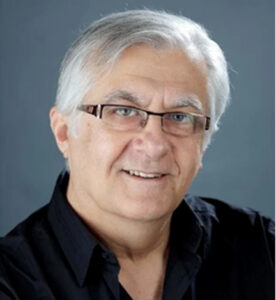AEA professionals bring their concerns to forum
“It is integrated and it is all connected and I don't think that's always understood."

Proposed changes to the way the state’s Area Education Agencies function dominated a Legislative Forum Saturday.
Conversation made clear the worries AEA professionals have about how the Legislature is intending to follow Gov. Kim Reynolds’ direction.
Sen. Dennis Guth, a Republican from Hancock County who represents Iowa’s 4th District, said both houses were responding to the governor’s Condition of the State address.
“She is a past county auditor and she’s good with numbers,” he said Saturday. “She went through a lot of these things along with hired help to do the analysis of it, and she found several things that look like there just wasn’t enough accountability for the dollars that were spent and the services that were received.”
Reynolds originally laid out changes to the AEAs, which provide special education and other services to Iowa schools, at the beginning of the 2024 legislative session. Her plan would allow school districts to contract with private companies or hire employees to do the work now performed by AEAs, according to Iowa Capital Dispatch.
The governor’s bill was voted down by a House subcommittee and was amended significantly by the Senate. Then the House and Senate advanced separate proposals on how to change the AEAs.
House File 2612, which was amended last week, incorporates several elements of both the House and Senate versions of the AEA bills, according to Iowa Capital Dispatch.
“The legislation would make no changes to special education funding for Iowa K-12 schools in the first year, but in the second year, the money would flow first to the school districts, which would be required to send 90% of it to the AEAs while having the option of keeping the remaining 10%.
“This language, similar to the House’s original proposal, is very different from the Senate’s amendment. That version proposed sending 90% of special education funds to school districts to use at their discretion with 10% going to the AEAs beginning in the 2025-2026 school year.
“The House and Senate proposals were similar in dealing with media and general education services: The AEAs would directly receive 40% of the funding, and school districts 60%, in year one, and all of the money would be routed to school districts in year two.
“The newly amended bill also reintroduces a measure from the House to create a task force to study AEAs and make recommendations on potential changes to the system before next year’s legislative session.”
AEA employees are worried about the direction these bills are taking.
“My son, who just graduated from high school last year, reminded me that in high school government class they learned that elected legislators’ duty is to do the CPP model in their voting,” said Jennifer Lorence, a speech pathologist for Central Rivers AEA. The C in CPP is constituents, she said. The P’s are for personal opinion and party — party being last, she added.
“They’re first supposed to go by what their constituents are asking them to do,” she said.
“I don’t believe that the governor, who wants all these changes to the AEA is a constituent of either of the two legislators … Their constituents don’t want this.”
Teresa Schulz, an audiologist with Central Rivers AEA, said about the services the AEAs offer: “It is integrated and it is all connected and I don’t think that’s always understood. That it’s not just an individual body; it’s like a Lego tower, and when you start throwing those pieces out of them, all of a sudden, yeah, you have the skeletal structure. But you’re missing … the whole.”
Rep. Shannon Latham, a Republican from Franklin County who represents House District 54, said in her weekly newsletter that published before Saturday’s forum that the AEA bill was “by no means a perfect bill.”
She added, “I want to make it clear that I believe AEAs are doing a great job providing support for our children. I have literally shadowed AEA employees and spent time observing teachers in the classroom, so I have seen firsthand how much heart they put into their jobs every minute of every day. As the mother of a child who benefited greatly from 16.5 years of AEA services, I hope the task force comes back with ideas to save money that could be reinvested to hire more therapists. As a business owner, I believe it’s healthy to look at any organization — whether it’s a nonprofit entity or a private business — with fresh eyes.
“The amended bill that passed last night includes the original House language for the task force/AEA study. It also requires schools to use AEAs for special education services.
“This is by no means a perfect bill, however, I truly believe public schools will benefit greatly from it. … I voted ‘yes’ for: (1) providing new money designated to increase pay for paraprofessionals; (2) increasing new teacher pay to $47,500 in Year 1 and $50,000 in Year 2; and (3) $22 million of new money designated for the teacher salary supplemental (TSS) pot of money that gives public schools (the ability) to increase pay for veteran teachers.”
The forum was moderated by Jim Kersten, vice president of external affairs and government relations for Iowa Central Community College, which hosted the event on the Webster City campus. The forums are co-sponsored by Iowa Central, the Daily Freeman-Journal, the Webster City Area Chamber of Commerce, the City of Webster City, and KQWC.
The final Legislative Forum in Webster City will be on April 27.





